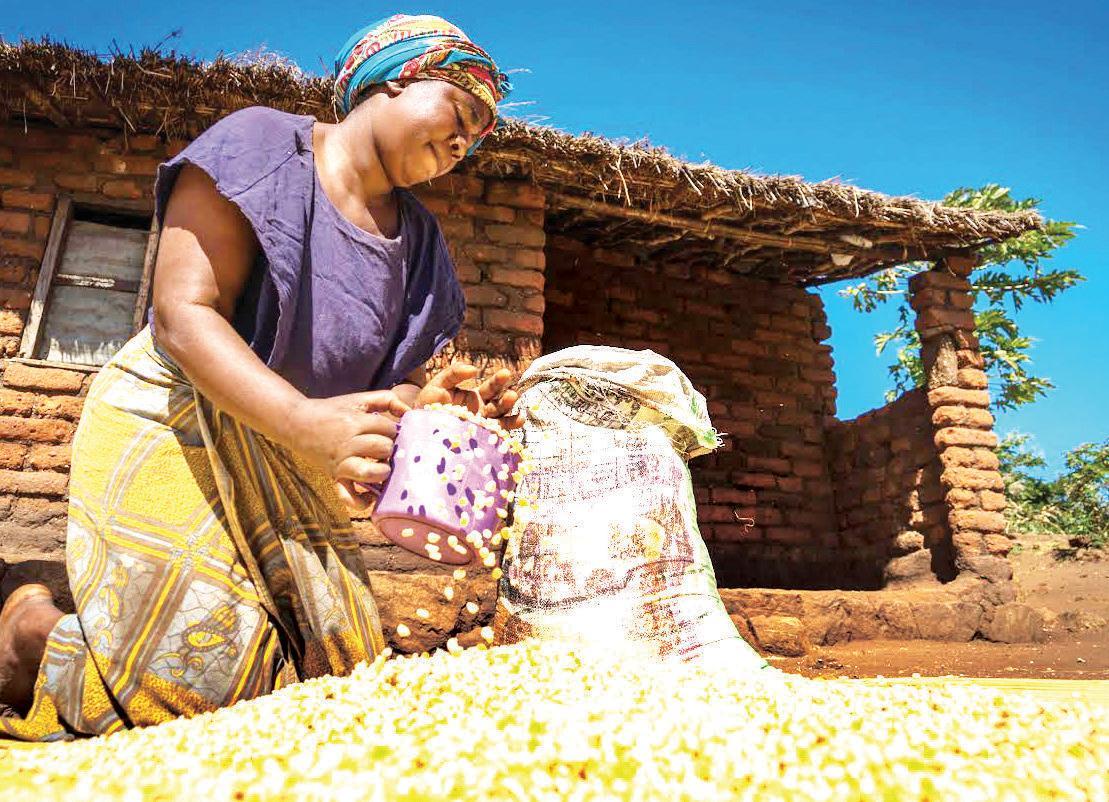Africa-Press – Malawi. The International Monetary Fund (IMF) mission team that has been in Malawi since May 23 is expected to leave the country tomorrow after concluding its two-week Article IV consultation visit.
The Article IV consultation is a routine review conducted by the IMF with each of its member countries, usually on an annual basis.
It is essentially a diagnostic process in which IMF staff evaluate a country’s fiscal position, monetary policy, inflation trends, debt levels and structural reforms.
Findings from these consultations may influence the IMF’s future support and programme directions, after the Fund’s Extended Credit Facility (ECF) programme with Malawi collapsed last month due to a lack of a review.
During their stay, the IMF delegation held a series of closed-door meetings with key government institutions, including the Ministry of Finance and Economic Affairs and the Reserve Bank of Malawi (RBM), to assess the country’s economic health and discuss policy measures under its current economic programme.
IMF Country Representative Nelnan Koumtingue confirmed that the Fund will soon issue a public statement on its findings and recommendations following the consultations.
“These missions are a standard part of the IMF’s surveillance framework. The Article IV consultation enables us to engage with the authorities on their economic and financial policies and provide advice that supports macroeconomic stability,” Koumtingue said.
However, not everyone views the process with optimism.
Marvin BandaEconomist Marvin Banda likened the Article IV consultations to a routine health check-up, saying that the focus tends to remain on predetermined benchmarks rather than on interventions that would stimulate long-term growth.
“These consultations are like hospital check-ups. They measure parameters set by the IMF and the government. While useful in assessing Malawi’s compliance with its ECF obligations, they fall short in supporting catalytic investment programmes that can drive economic growth,” Banda said.
He criticised what he called the rigidity of IMF programmes, claiming that they often overlook the unique needs of developing economies like Malawi.
“There is very little flexibility. The focus is always on negotiation points already agreed in the loan programme. The economy is still struggling post- Covid, and the initial policy actions under the ECF, particularly the 44 percent Kwacha devaluation, have only worsened the situation,” he said.
Banda further said that while ECF was designed to unlock donor inflows and restore fiscal discipline, the anticipated aid has not materialised, leaving ordinary Malawians grappling with high inflation and reduced purchasing power.
“The devaluation was a policy misstep that our economy may never recover from. It is responsible for the soaring prices and the economic hardship being felt today,” Banda said.
He recommended that Malawi’s inflation strategy should prioritise increasing food production to ease pressure on the Consumer Price Index, which is largely food-driven.
Additionally, he urged authorities to stabilise fuel prices to contain transportation and commodity costs.
On public debt, Banda advised the government to consider rebasing the Gross Domestic Product (GDP) to reflect new sectors like mining, saying that this could lower the debt-to-GDP ratio.
However, he cautioned that this would not solve the underlying debt repayment challenge.
He also pointed to structural issues in managing foreign exchange reserves.
“RBM must recognise that forex is increasingly decentralised due to technology. These channels are not necessarily illegal but reflect a failure in attracting forex through formal systems,” he said.
Banda concluded by calling for a shift in mindset.
“IMF’s findings should serve as guidance, not gospel. Malawi must start designing its own development pathways tailored to its realities. The days of relying entirely on one-size-fits-all IMF prescriptions are over,” he said.
When contacted for comment, Ministry of Finance spokesperson Williams Banda declined to discuss the outcome of the consultations, saying: “Let us wait for the official press statement from the IMF.”
Although Article IV consultations do not directly govern the ECF, experts say their findings play a crucial role in shaping IMF decisions regarding the facility.
They explain that IMF uses Article IV reports to evaluate whether a country is meeting the policy benchmarks and reform commitments tied to its ECF support.
If the consultations reveal significant economic challenges or non-compliance with the programme’s conditions, the Fund may delay funding, request corrective measures or even suspend the ECF.
Meanwhile, government authorities maintain that the conditions tied to the collapsed ECF were unrealistic and that they are developing homegrown strategies for development.
For More News And Analysis About Malawi Follow Africa-Press






